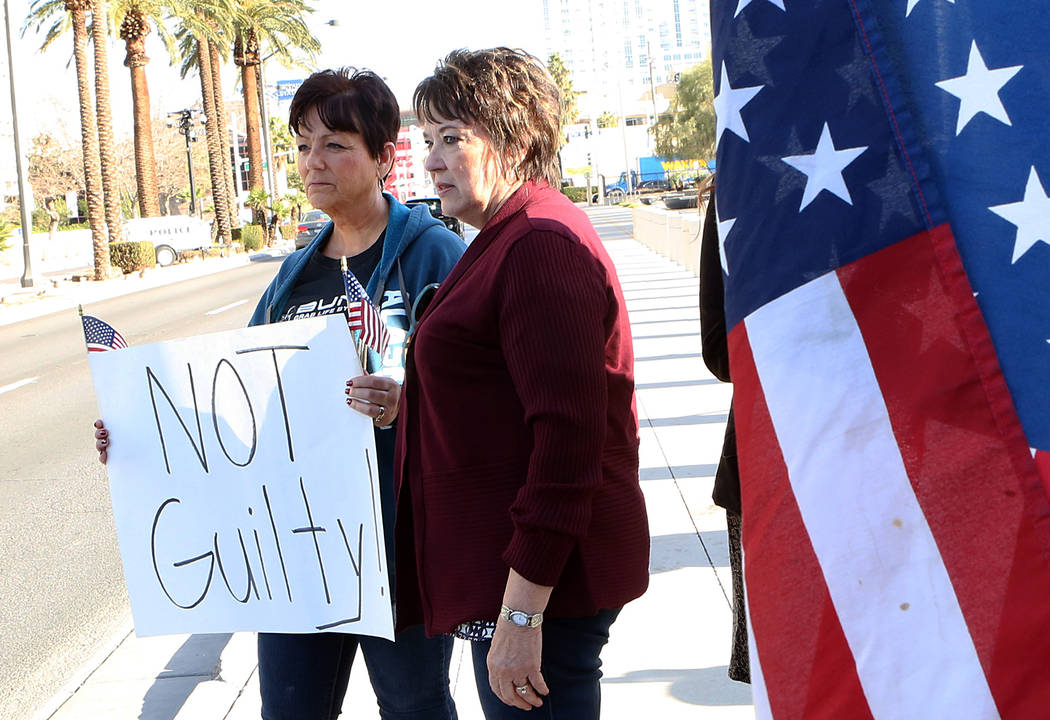
As the 2014 standoff in Bunkerville escalated and authorities started to fear a gunfight, Bureau of Land Management Ranger Patrick Apley turned off his body camera.
“I was mad,” Apley testified Tuesday in the trial of six men accused of conspiring with rancher Cliven Bundy to block federal authorities from seizing cattle. “I felt like we were going to be in a firefight, and I really didn’t want to record that.”
Apley’s body camera recorded the events of April 12, 2014, until the situation reached a boiling point, with armed protesters on one side and armed law enforcement officers on the other. Testimony at the trial has revealed that both sides feared a spray of gunfire on the open range.
“It’s gonna get Western,” Apley said before he stopped recording. Federal prosecutors played the body camera footage in court Tuesday.
First Assistant U.S. Attorney Steven Myhre asked Apley why he didn’t want to record a gunfight.
“I didn’t want to record any mayhem,” Apley replied.
Defense attorney Jess Marchese, who represents defendant Eric Parker, hammered the ranger for that decision.
“What’s the purpose of having a body camera?” Marchese asked.
“The purpose of a body camera is to record the incident. However, I was under a lot of stress at that point and I just didn’t want to continue with all that,” Apley said.
In direct examination, Tuesday, Myhre, the lead prosecutor, extracted testimony from Apley about the nature and severity of the threat protesters posed to federal law enforcement. As the situation grew increasingly tense — but before federal agents decided to abandon the operation and head home — Apley spent 10 to 15 minutes standing with several other agents behind the bed of a pickup truck, their weapons drawn.
When asked to rate the threat level on a scale of one to 10, Apley said it was “about a 7” — which he said compared only to his combat days.
BLM agents eventually left the site, passing by protesters who Apley said were “flipping us off, telling us to go home.”
Myhre asked Apley how the events in Bunkerville had affected his ability to carry on with his duties.
“I’m more aware of my surroundings now,” the ranger said. “I’m a little bit more leery of people carrying guns, and how they’re carrying guns.”
The six men are standing trial on charges of conspiracy, extortion, threats, and assault for their role in the 2014 armed standoff that occurred after federal authorities tried to seize Bundy’s cattle. They represent the first of three groups of people who will be tried in the case, after federal prosecutors divided the 17 defendants into groups of culpability for trial.
None of the defendants in the first trial is a Nevada resident. Federal prosecutors characterize them as “gunmen” because they drove to Bunkerville and joined armed protests after learning of the clashes through online postings.
Contact Jenny Wilson at jenwilson@reviewjournal.com. Follow @jennydwilson on Twitter.